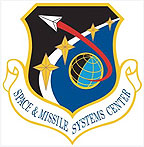
The U.S. Air Force has released a final Request for Proposal (RFP) for Evolved Expendable Launch Vehicle (EELV) Launch Services for the following payloads: National Reconnaissance Office Launch (NROL)-85, NROL-87, SILENTBARKER, Space-Based Infrared System Geosynchronous Earth Orbit (SBIRS GEO)-5, and Air Force Space Command (AFSPC)-44.
The final RFP was released on January 31 with proposals due back to the Air Force on April 16 in accordance with the solicitation instructions. The contracts for these launch services are expected to be awarded in late 2018.
The U.S. Air Force will award firm-fixed-price contracts that will provide the government with a total launch solution for these missions. The award includes launch vehicle production, mission integration, and launch operations. The U.S. Air Force's acquisition strategy for this solicitation achieves a balance between meeting operational needs and lowering launch costs by reintroducing competition for National Security Space missions. This is the sixth competitive launch service solicitation under the current Phase 1A procurement strategy.
SBIRS GEO-5 and AFSPC-44 are planned to be launched from Cape Canaveral Air Force Station or Kennedy Space Center in FY 2021. NROL-87 is planned to be launched from Vandenberg Air Force Base in FY 2021. NROL-85 can be launched from the Eastern or Western Range and is planned to be launched in FY 2021. SILENTBARKER is planned to be launched from Cape Canaveral Air Force Station or Kennedy Space Center in FY 2022.
Lt. Gen. John Thompson, Space and Missile Systems Center commander stated that the Air Force utilizes a combination of source-selection techniques from across the best-value continuum that are tailored for each individual mission. This solicitation incorporates a trade-off between past performance, performance and schedule sub-factors, and price to maintain a focus on mission success for these critical payloads.

